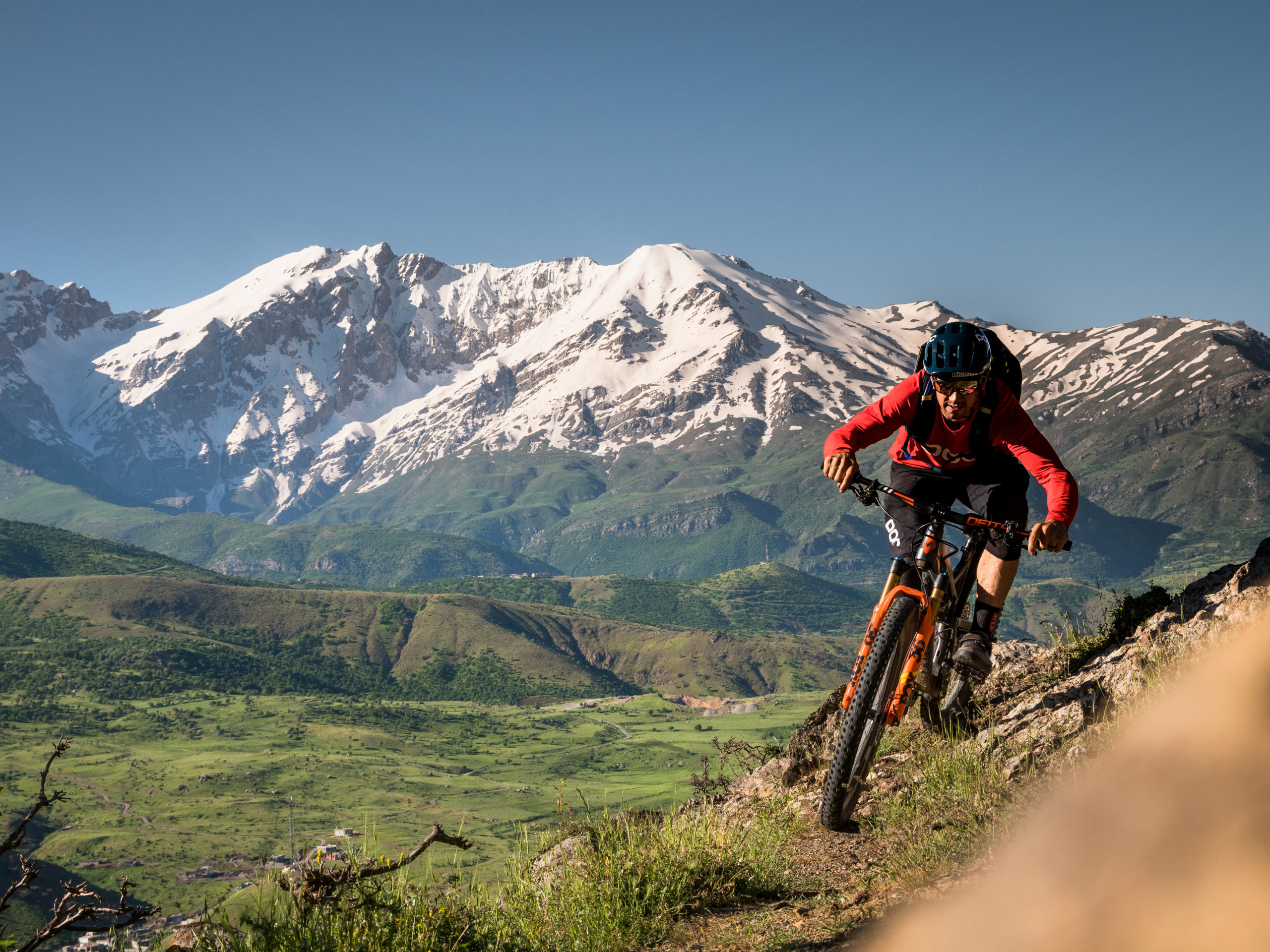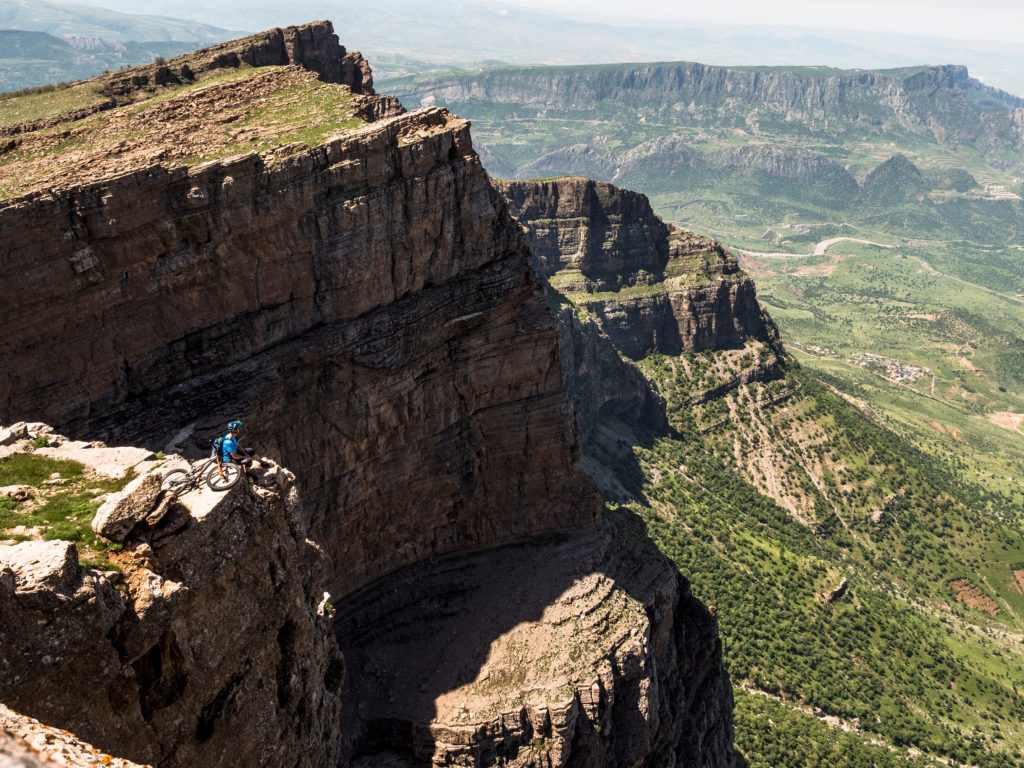
On a crisp spring night on the flanks of Bradost Peak, six tents sway in the breeze on a grassy bench in the Zagros Mountains of northern Iraq. Synonymous with war since the US invasion in 2003, Iraq might seem an ill-advised camping spot for a group of adventuring westerners. Mosul, one of the last strongholds of the Islamic State, is down the road, and Kirkuk, a Kurdish separatist hotbed that sees regular air strikes and suicide attacks, is just a bit farther. But if our team logistics expert’s hunch is right, miles of first-rate single-track are also close at hand.
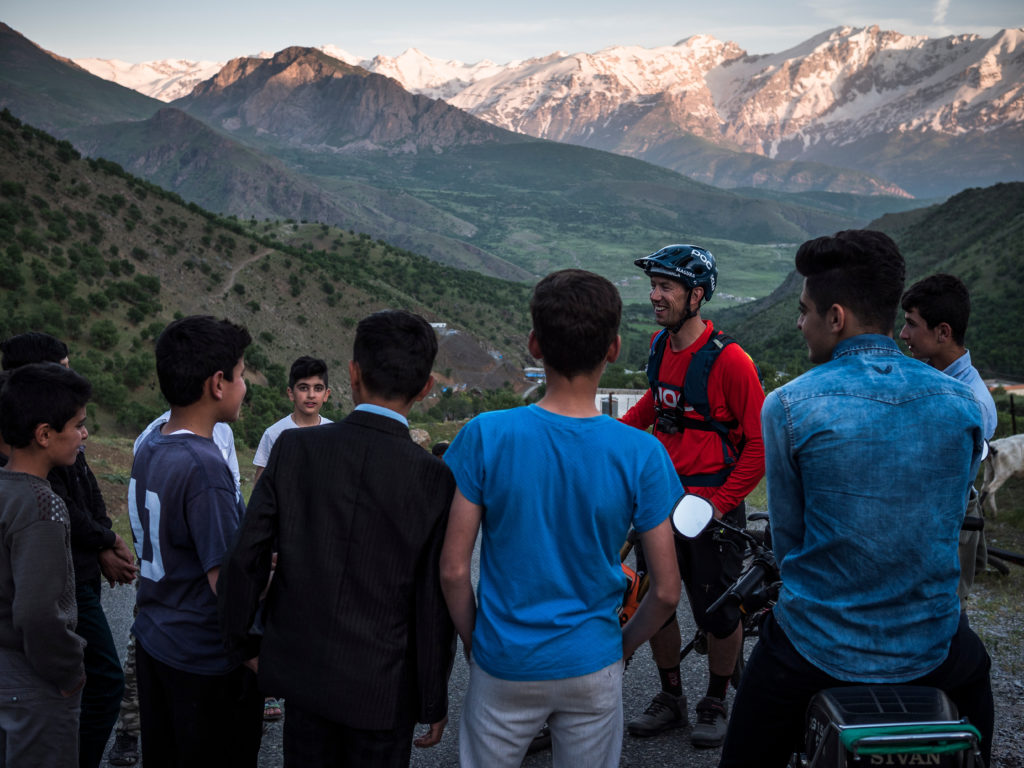
We’re here to explore the mountain biking potential of Iraqi Kurdistan, a semi-autonomous swathe of northern Iraq that remains geographically, culturally, and politically apart from the rest of that troubled nation. The Kurds are a stateless people – the world’s largest ethnic group without their own nation-state – pressed into the margins of Iran, Syria, Turkey and this northernmost corner of Iraq, a mountain sanctuary of soaring peaks and wild rivers more reminiscent of Alaska than the fiery, flat oilfields the name Iraq conjures.
The law here is the Peshmerga, an independent Kurdish military that sided with the Americans against Saddam Hussein in the chaos that followed his downfall and now patrols a fortified border that insulates their homeland from the rest of Iraq. As a result, Iraqi Kurdistan is an oasis of relative stability. ‘No westerner has been kidnapped or killed in Iraqi Kurdistan since 2003’ our logistics expert, Tom, assured us in his pre-trip briefing. ‘The only risks are asymmetric bombing attacks, which are infrequent and aimed almost exclusively at government targets, and air strikes on separatist operations, but they’re in known areas that we avoid.’ It’s perfectly safe, he says.
Optimism is Tom’s stock in trade. Having served two tours in Afghanistan as an officer in the British Parachute Regiment, Tom has pedalled in Afghanistan’s Wakhan Corridor, spun downhill runs in the high mountains of the Democratic People’s Republic of Korea (DPRK), and carried his mountain bike to the highest peak in Ethiopia for a 6,000-foot descent. He insists his trips aren’t about courting risk, but rather understanding the world. ‘Traveling to places that we as a society fear makes you realise that people are the same everywhere. It’s the best way to break down preconceptions’ he says.
After the descent from Safin, we roll into Shaqlawa, a hill station of 25,000 that draws Iraqi tourists with its Mediterranean climate and scores of restaurants. It’s Ramadan, the ninth month of the Islamic calendar, which most people observe by fasting from dawn until dusk.
After dark, which is when we go out, the streets are swarming and cafés overflowing. Dinner is the usual Middle Eastern fare — chicken and lamb kebabs, rice, soup, flat bread — after which we fall into the procession of locals strolling the cobbled main street. Men with Elvis Presley bouffant haircuts, the vogue in the country, and pointy brogues bubble hookahs on open-air patios, while families tuck into shoe shops and cell phone stores. More women wear jeans than headscarves, and children drag their parents to the ice cream shops on almost every corner. It’s like a Rated G version of the Atlantic City boardwalk, complete with American muscle cars cruising laps, including one particularly tricked out black Chevy Camaro. Sometimes, even on riding trips, it’s not always about the riding.
On our next to last day in Kurdistan, we explore Sar Murid Canyon, the easternmost stop on the trip, less than 10 miles from the Iranian border. From where we park amidst smashed-out concrete bunkers, slabs of limestone adorn the grassy hillside like half-tumbled dominos, and stone armaments on the cliff walls testify to centuries of civilisation.
We climb the canyon following a mirror-clear, spring-fed creek. The chasm necks down to 20 yards across, then opens into a broad vertiginous valley that stair-steps northward beneath a fortress of rock. This is the riding we’ve been seeking: strenuous but manageable, and in a silent, wild setting. For a moment, it’s tempting to imagine adventure tourism taking root in Kurdistan
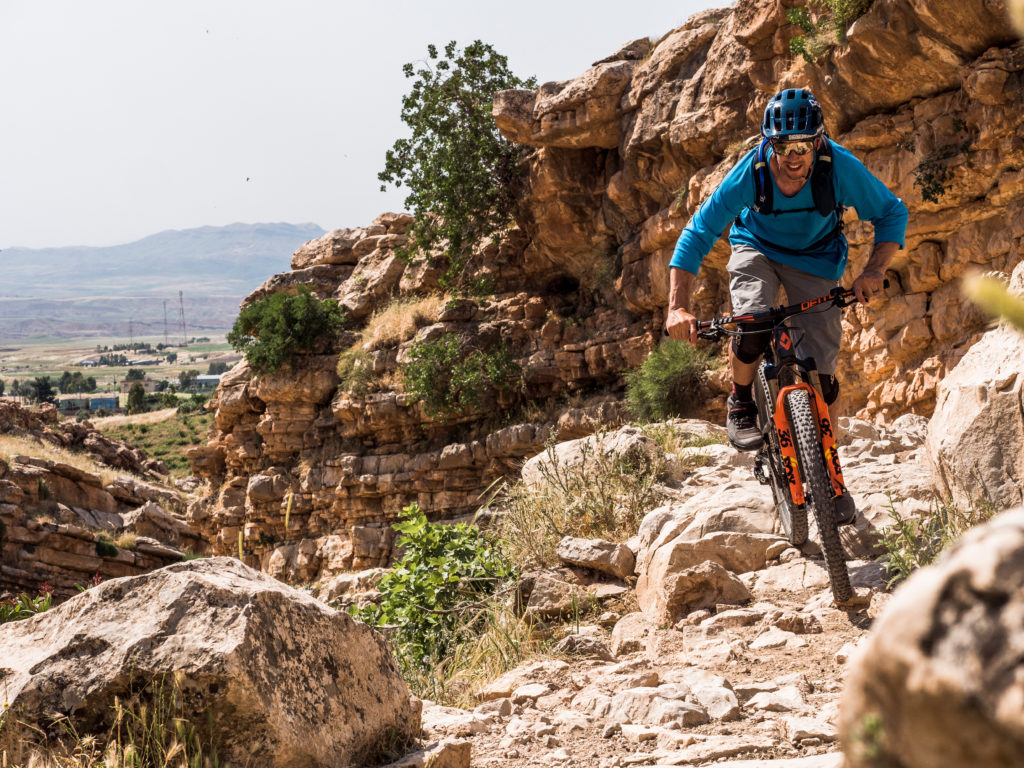
As we climb, Rasool tells us that he recently bought a pair of old stone buildings in the village ahead, with plans to turn them into a backcountry lodge. But after 45 minutes of climbing, the trail ends at a freshly tarred road. Rasool is speechless. When he’d been here a month before, there was no road – and no plans for one.
We continue on the new road to the village of Sar Murid, a half dozen squat stone structures and walls inhabited by an extended family. One of the younger sons, a 20-something farmer with a Kalashnikov on his shoulder, comes out to talk with us. He says that his family didn’t know about the road till the machines arrived and began cutting it, though he’s not complaining. Once complete, the road will transform the trip to town from a three-hour circumnavigation to a jaunt of less than an hour. He doesn’t know why the road is being built, but he’s heard rumoru of a mine. Rasool’s eyes smoulder with rage. ‘If war doesn’t destroy this country, corruption will’, he says.
The road and the mine would scuttle his blueprint for a wilderness lodge, but Rasool seems more anguished over the destruction of the canyon than the personal setback. He slumps on the limestone slab roof of one of his huts, his head in his hands. ‘Kurdistan has so much potential’, he tells me, ‘but also so many challenges. I don’t know which will win, but sometimes I’m afraid.’
It’s a poignant exhalation to the trip, which has swung between astonishing beauty and generosity and the brutal realities of living in the shadows of one of the world’s most troubled regions. The mountains here beckon, but in reality very few outsiders are likely to come at the present time.
We turn our bikes back toward the truck and rip down valley, skipping off stacks of boulders, pushing through corners till our tires rip off the dirt, and throwing up wakes of icy creek water that glisten gold in the gathering evening light. This is no doubt the first-ever mountain bike descent of Sar Murid. It also feels like the last.
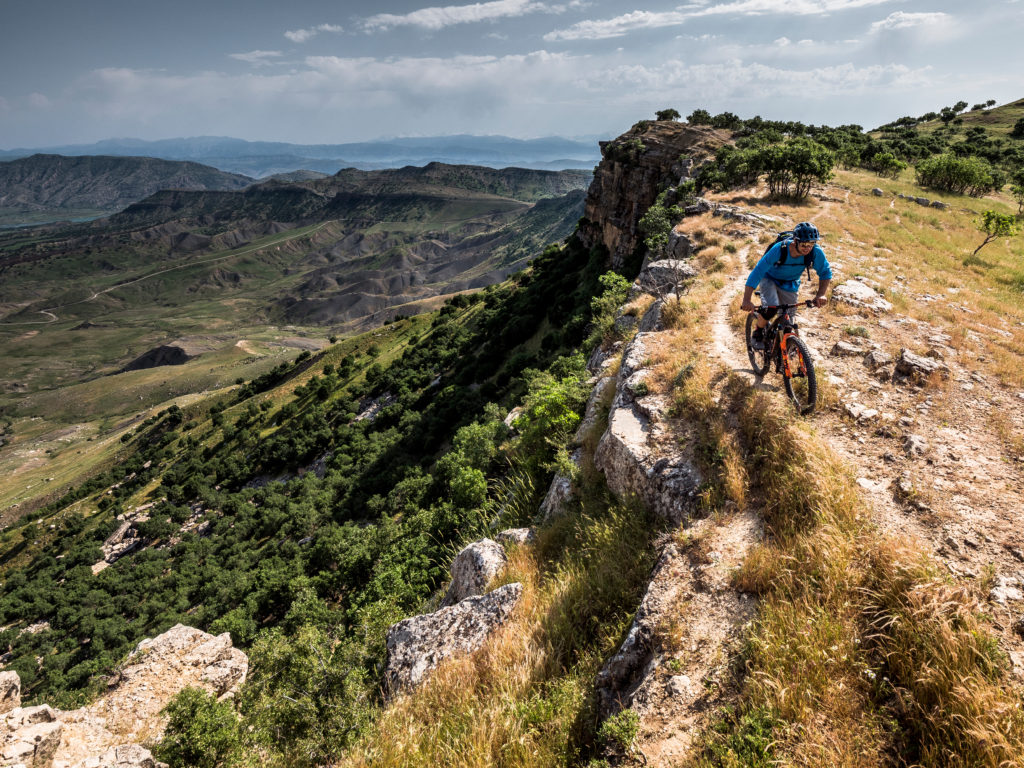
Words by Dan Milner. The full story can be found in Base Magazine. Aaron Gulley Photography. 7/14/2020





